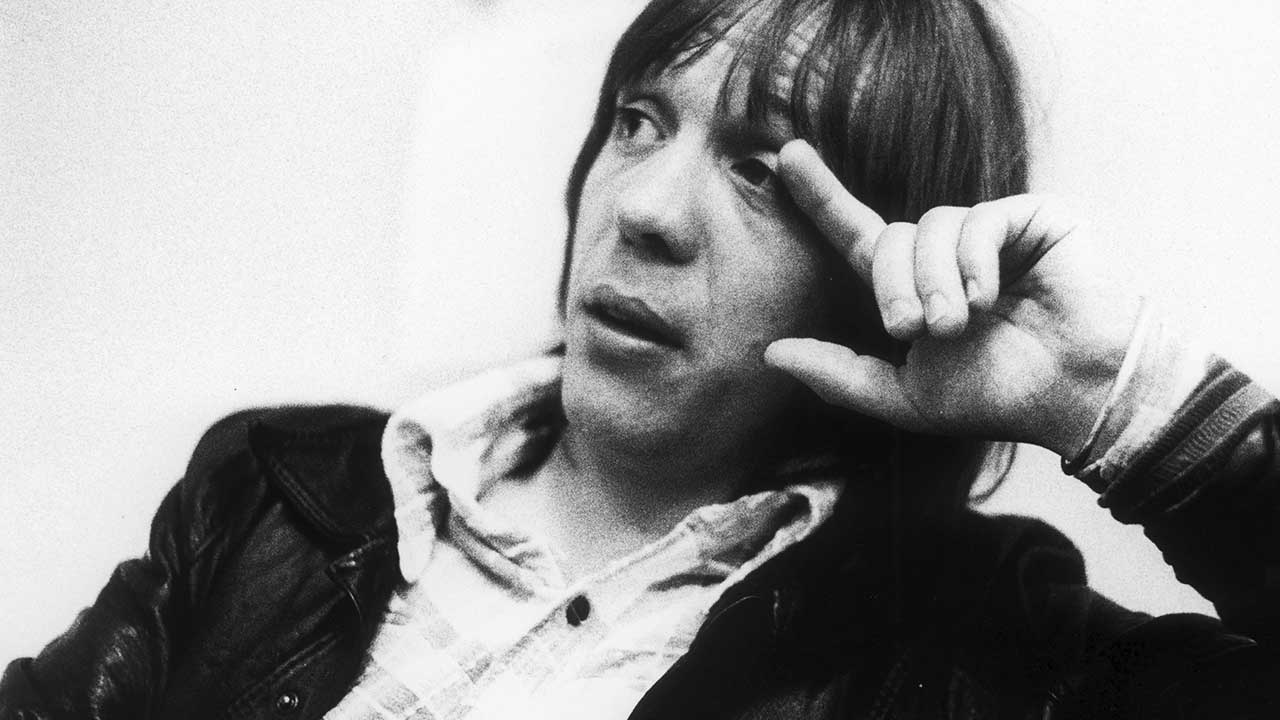The Bridge Of Sighs is one of the most popular tourist locations in Venice. It was built in 1600, and linked a courthouse to an adjoining prison. Its name refers to the expressions of sadness of the convicted prisoners who could be heard as they looked out over the beautiful city for the last time before being taken to their cells or the execution chamber. As a subject for one of the deepest and most despairing songs in rock, it could hardly be bettered.
But Robin Trower has never been there. Nor was he even thinking about this, or any other historic monument, when the inspiration to write the song struck. “I was reading a paper one morning, and there was a horse running called Bridge Of Sighs. And I thought: ‘That’s a great title.’ So I worked it into the song,” the guitarist says cheerfully, and firmly debunking any myths.
It certainly turned out to be a good horse to back. Built around a dense, doomy, echo-drenched riff, taken at a speed as slow and implacable as a planet moving across the night sky, Bridge Of Sighs is a song that goes beyond blues into an otherworldly realm of existential sorrow. With a lyric that evokes cosmic disturbances and divine interventions, conveyed by the rich, mournful voice of James Dewar, it is a truly monumental and mysterious rock track. And in 1974, thanks in large part to Bridge Of Sighs and the album named after it, Trower transitioned from the role of English rock journeyman to international guitar hero.
In contrast to the wondrous flights of fancy on which he embarks in his music, Trower is an emphatically down-to- earth character who began his career serving a colossal apprenticeship to stardom. Having set out with The Paramounts during the beat boom of the early 1960s, he joined Procol Harum soon after they recorded their first and biggest hit, A Whiter Shade Of Pale, in 1967. After recording five albums with Procol, he left in 1971 to form a new group called Jude before finally setting up his own trio with singer and bassist Dewar (formerly with Stone The Crows) and drummer Reg Isidore.
Trower’s first album under his own name, Twice Removed From Yesterday, was released in 1973. It made little impression in the UK, but stirred interest in America.
“There was a song on the first album called I Can’t Wait Much Longer, which had a similar guitar part,” Trower recalls. “And I think, to start off with, Bridge Of Sighs was a different version of the same vibe. I was working on it for months and months before I could get the lyric. I had the first half, and then it took me ages to come up with the turnaround. Eventually we started to play it live, although I only had one verse of lyrics, so Jimmy used to sing the first verse twice. Eventually I came up with the second verse and we played it in the studio, where I added all the ideas and sound effects for the instrumental outro.”
The song was recorded at Air Studios in Regent Street, London, with the basis of the track being captured on the first or second take: “I think we recorded the whole album in sixteen days. So you didn’t hang about. I don’t think there was a lot of pondering.”
The album was produced by Matthew Fisher, Trower’s ex-bandmate from Procol Harum. But it is engineer Geoff Emerick whom Trower credits for the revolutionary sound of the recording.
“He came up with a way of recording the guitar I don’t think had been done before,” Trower says. “It was a big room and he had one mic in close, one mic set in the middle distance, and one mic set fifteen feet away to get the sound of the room. That was a very big factor in how the song and the whole album sounds.”
“Lyrically, the song is all about that first line,” Trower continues. “‘The sun don’t shine, the moon don’t move the tides to wash me clean.’ It’s a person just going through a time when nothing’s going right. It’s a typical blues lyric but it has original little twists to it. ‘The gods look down in anger on this poor child.’ The guy’s down on his luck. His woman’s left him. It’s an epic thing.”
After the singing stops, the track gradually turns into a sonic sculpture. Beginning with a single guitar line, Trower gradually builds a swirling mosaic of counterpoint guitar parts, enveloped in a rushing-wind effect and backwards-recorded chimes.
“I had the underlying orchestration part before we went into the studio, so I added that straight away. We found the wind on a BBC tape or something. And I came up with the idea of having those chimes, but recording them backwards. It was something I’d been reading about in an electronics magazine, and I just thought let’s have some voices burbling away, not making any sense.”
Bridge Of Sighs became a radio staple in the US, where the album reached No.7, and helped establish Trower as one of the big touring attractions of the mid-70s.
While he has maintained a prolific output, Bridge Of Sighs remains his signature song. Why does it still resonate?
“It’s very deep. It’s powerful. And it’s atmospheric. It’s more than a rock ’n’ roll song,” Trower says. Does he still enjoy playing it? “Oh yes. It’s such a potent piece. You get lost in it when you play it.”

